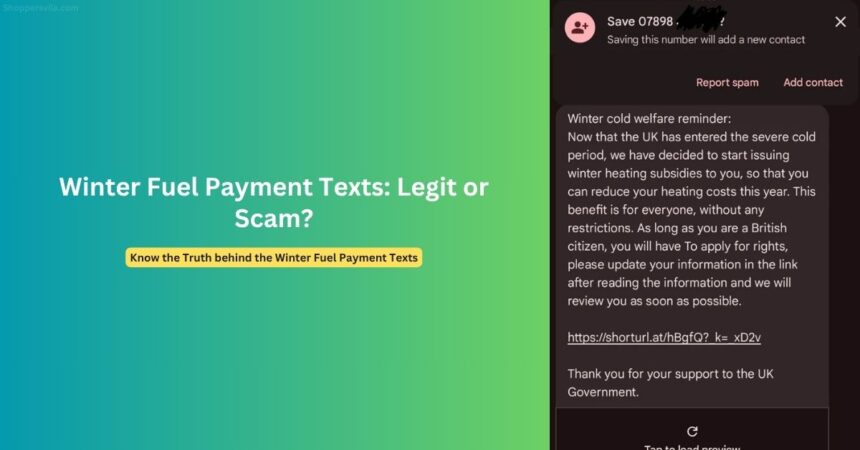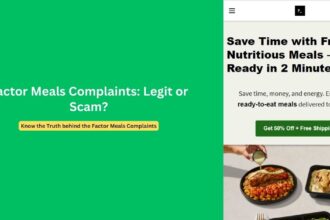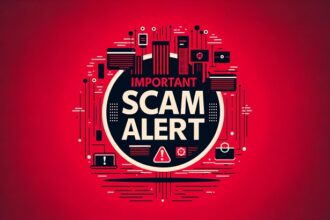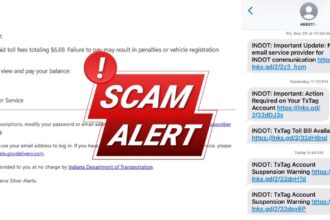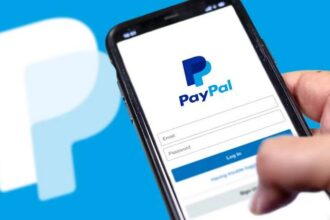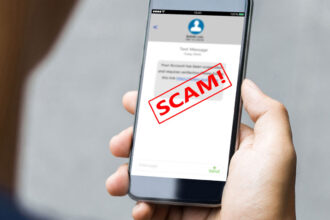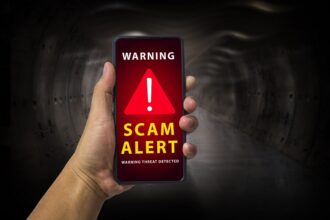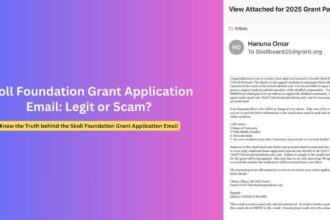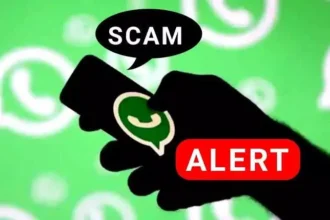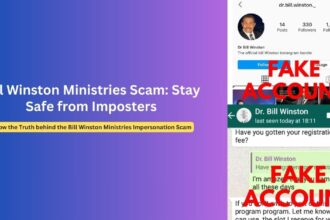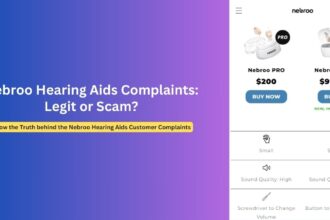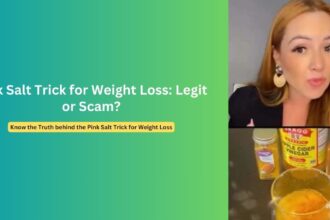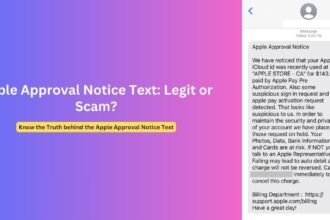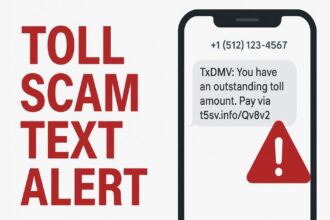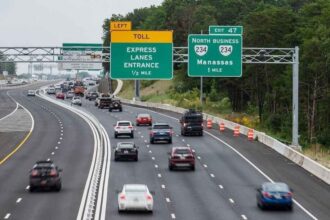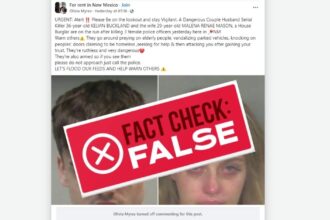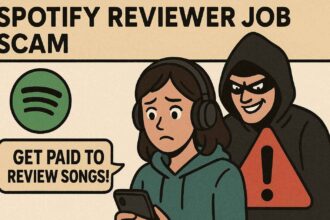As winter approaches and temperatures drop across the UK, a concerning wave of fraudulent text messages claiming to offer winter fuel payments has emerged, targeting vulnerable citizens with sophisticated phishing attempts. Authorities across multiple regions are warning residents to remain vigilant as these scams become increasingly prevalent and convincing.
Overview of the Winter Fuel Payment Text Scams
In recent weeks, police forces and trading standards departments nationwide have reported a surge in fraudulent text messages impersonating government agencies. These texts falsely claim to offer winter heating subsidies or “cold weather allowances,” typically amounting to £300, to help recipients cover increased heating costs during cold spells.
The scam is particularly insidious as it exploits genuine concerns about rising energy costs and coincides with recent changes to the UK’s Winter Fuel Payment scheme, which has tightened eligibility requirements. From 2024 onwards, Winter Fuel Payments are only available to those born on or before September 22, 1958, who also receive specific benefits such as Pension Credit, Universal Credit, or certain tax credits.
“These criminals are deliberately targeting people during a time of financial vulnerability,” explains a spokesperson from the National Cyber Security Centre. “The combination of cold weather and anxiety about heating costs creates the perfect environment for scammers to exploit fear and urgency.”
How the Scam Works
The deception follows a calculated pattern designed to harvest personal and financial information:
- Initial Contact: Victims receive unsolicited text messages or emails claiming to be from government departments such as the “Department for Work and Pensions” or sometimes the incorrectly named “Department of Pension Protection.”
- False Urgency: The messages typically include a fabricated deadline, creating pressure to act quickly or risk losing the supposed payment.
- Malicious Links: Recipients are directed to click on shortened URLs (like tinyurl or rebrand.ly links) that lead to convincing but fraudulent websites mimicking official government portals.
- Data Harvesting: These fake websites prompt victims to enter extensive personal information, including full name, address, date of birth, National Insurance number, and crucially, banking details ostensibly to receive the payment.
- Financial Theft: Armed with this information, criminals can commit identity fraud, empty bank accounts, or make unauthorized purchases.
The fraud protection officer Claire Bounds from Avon and Somerset Police warns:
“Even clicking the link and not entering any information could result in malicious software being downloaded onto your device. We have seen a spate of these texts being circulated in our area and it’s important for people to understand the best course of action to take.”
Examples of Fraudulent Winter Fuel Payment Texts
Security experts have collected numerous examples of these scam messages. Here are some actual fraudulent texts reported by UK residents:
Example 1: Basic Winter Cold Welfare Reminder Scam Text
Winter cold welfare reminder: Now that the UK has entered the severe cold period, we have decided to start issuing winter heating subsidies to you, so that you can reduce your heating costs this year. This benefit is for everyone, without any restrictions. As long as you are a British citizen, you will have To apply for rights, please update your information in the link after reading the information and we will review you as soon as possible. https://shorturl.at/hBgfQ? k= xD2v Thank you for your support to the UK Government.
Example 2: More Sophisticated Version
Winter cold protection welfare notice: Winter has officially arrived, and after discussion, the parliament is preparing to start issuing winter heating subsidies (2024-2025) to help everyone share part of the winter heating costs. There is no age limit for this benefit and it will not affect your ability to receive other benefits. You only need to be a British citizen to apply via the link. We will review your updated information. (shorturl link) Thank you for your support to the UK Government.
Example 3: Deadline-Focused Variant
Notice: Your last round of winter heating allowance this year will reach the deadline for receipt on November 11, 2024. Please fill in the complete information immediately, and we will issue it to you within 7 working days. If you give up filling in the information, we will issue it to other citizens who need it more. https://rebrand.ly/vh3xbib?ofd=DPvuoNgc May you have a wonderful and warm winter.
Example 4: Recent Variation
Winter Heating Subsidy Reminder: Winter is coming, and we will continue to issue winter heating subsidies to help you survive this cold winter smoothly. Since you are eligible to apply, please update your information in the link after reading the information. https://tinyurl.com/462nrk45?_k=iitsH Thank you for you support of the Uk Government.
Fake Text Patterns: Decoding the Messages
These scam messages often contain recognizable patterns that can help identify them as fraudulent. Analyzing numerous examples reported across the UK reveals common characteristics:
Common Phrasing and Terminology
- References to “winter cold welfare,” “winter heating subsidies,” or “cold weather allowance schemes”
- Claims about the UK entering a “severe cold period”
- Mentions of applications being “reviewed” by authorities
- Statements that the benefit is available to “all British citizens”
- Unusual closing phrases like “May you have a wonderful and warm winter”
- Expressions of gratitude for “supporting the UK Government”
Red Flags: Spotting the Fake Winter Fuel Payment Notice Text
Security experts and trading standards officers have identified several warning signs to help the public identify these fraudulent communications:
Immediate Red Flags
- Unsolicited messages: The genuine Winter Fuel Payment process is automatic with eligible recipients notified by letter, not text or email
- Mobile phone numbers as senders: Official government communications do not come from personal mobile numbers
- Poor grammar and spelling: Many scam texts contain awkward phrasing, grammatical errors, or unusual capitalization
- Shortened URLs: Government agencies use their official domains (gov.uk), not URL shorteners
- Requests for bank details: The legitimate Winter Fuel Payment scheme already has payment information for eligible recipients
- Non-standard terminology: References to “subsidies” rather than the official “Winter Fuel Payment” term
“The government would never send text messages with grammar checked by a five-year-old,” noted one commenter in an online discussion about these scams. “And they’d certainly never use shortened URLs instead of official government websites.”
How to Identify and Protect Yourself from These Scams
Protecting yourself from these sophisticated scams requires awareness and caution. Experts recommend the following preventative measures:
Verification Methods
- Check official channels: For accurate information about Winter Fuel Payments, visit the official gov.uk website directly (by typing the address into your browser) or call the Winter Fuel Payment Centre on 0800 731 0160
- Confirm eligibility criteria: Remember that legitimate Winter Fuel Payments are now only available to those born on or before September 22, 1958, who also receive specific benefits
- Understand the official process: The genuine Winter Fuel Payment is applied automatically with recipients notified by letter—no online applications are required
- Verify before clicking: If you receive a text about government benefits, independently check the information through official channels before clicking any links
Digital Security Measures
- Update device security: Ensure your mobile phone and computer have current security software installed
- Enable spam filters: Most email providers and mobile phones have options to filter potential spam
- Be cautious with links: Avoid clicking links in unsolicited messages, especially those creating a sense of urgency
- Check email addresses carefully: Pay attention to the sender’s email address—government communications come from gov.uk domains
Nottinghamshire Trading Standards emphasizes: “The Winter Fuel Payment is applied automatically. Eligible individuals will receive a letter from the government telling them they are in line for a payout, and no action is required by the recipient.”
What to Do If You’ve Received or Responded to a Scam
If you’ve already encountered these scam messages, taking prompt action can help minimize damage and protect others:
If You Received a Suspicious Message:
- Do not click any links in the message
- Forward the text to 7726 (free of charge) to report it to your mobile provider
- Report the scam to [email protected], including a screenshot if possible
- Delete the message once reported
If You’ve Already Responded to the Scam:
- Contact your bank immediately by calling 159 to report potential fraud and block transactions
- Change passwords for any accounts that may be compromised
- Report the incident to Action Fraud on 0300 123 2040
- Monitor your accounts for unusual activity
- Be alert for follow-up scams, as responding to one fraudulent message may lead to additional attempts
Age UK Birmingham advises that anyone concerned about Winter Fuel Payments should contact legitimate support services: “If you do not get Pension Credit and think you may be eligible, please contact us. Our Information and Advice Team can do a Benefit Check for you.”
Frequently Asked Questions (FAQs)
1. Are text messages about Winter Fuel Payments ever legitimate?
No. The Department for Work and Pensions does not send text messages about Winter Fuel Payments. The legitimate process involves automatic payments to eligible recipients who are notified by letter, not text or email.
2. How can I check if I’m genuinely eligible for Winter Fuel Payments?
From 2024, eligibility requires being born on or before September 22, 1958, AND receiving specific benefits like Pension Credit, Universal Credit, Income Support, income-based Jobseeker’s Allowance, income-related Employment and Support Allowance, or certain tax credits. Visit gov.uk/winter-fuel-payment for official information.
3. What happens if I’ve already clicked a link in one of these messages?
Even without entering information, clicking the link could potentially download malware to your device. Run an antivirus scan immediately, monitor your accounts for suspicious activity, and consider changing passwords for important accounts from a different device.
4. Is forwarding the text to 7726 really free of charge?
Yes. Forwarding suspected scam texts to 7726 is a free service that allows mobile providers to track the origin of fraudulent messages and take action against the senders.
5. Could this just be a mistake rather than a scam?
No. These messages are deliberate attempts to steal personal and financial information. The government has confirmed that such texts are fraudulent and should be reported immediately.
Conclusion: Staying Vigilant Against Evolving Threats
As winter approaches and economic pressures mount, scammers will continue to exploit concerns about heating costs and financial support. These winter fuel payment scams represent just one variant in an ever-evolving landscape of digital fraud targeting vulnerable individuals.
The consistent advice from police, trading standards officers, and cybersecurity experts is clear: the government does not initiate contact about benefits via text message or email, particularly when requesting personal or financial information. Legitimate Winter Fuel Payments are processed automatically, with eligible recipients notified by official letter.
By maintaining healthy skepticism toward unsolicited messages, verifying information through official channels, and promptly reporting suspicious communications, the public can help protect themselves and others from these increasingly sophisticated scams.
Remember: if a message creates urgency, requests personal information, or seems too good to be true—proceed with extreme caution. When it comes to government benefits, always verify through official sources before taking any action.
If you need legitimate assistance with Winter Fuel Payments or other benefits, contact the Winter Fuel Payment Centre directly at 0800 731 0160 or visit the official website at gov.uk/winter-fuel-payment.
